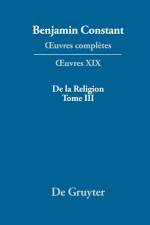av Benjamin Constant
101
Adolphe is just past the his coming-of-age, but has a much more room to grow. As the son of a government official, Adolphe has a privilege of comfortable wealth and access to a good education, however, he feels trapped in routine, boredom, and a bleak world. Shaped by his childhood, Adolphe has a melancholy outlook on life, turning him into an introverted young man. After he graduates from college, Adolphe struggles to find fulfillment, so he travels to Germany for an adventure. There, he feels overwhelmed and displeased by the stupidity he perceives from society, earning him a reputation for an unpleasant wit. While he is just looking for fun, Adolphe meets Ellénore, a thirty-two-year-old Polish refugee. Though she has a husband and two kids, Adolphe is enamored by her. As if it were a game, Adolphe is dedicated to seducing Ellénore, but soon finds himself deeply in love with her. They engage in an illicit affair, riddled with jealousy, secrets, and lust. Despite these qualities, and that Ellénore is ten years older than Adolphe and married, they share a significant love for each other. However, they are quickly shunned from society when their affair is made public, causing Adolphe to worry that their relationship could affect his future endeavors. When Ellénore makes the sacrifice of leaving her family behind to fully commit to him, Adolphe must decide if he is willy to do the same for her. When Adolphe was first released in 1816, it invited controversy due to the resemblance to Benjamin Constant¿s own romantic affairs. Since then, Benjamin Constant¿s Adolphe piques readers interests with its passionate romance and complicated protagonist. Adolphe¿s indecisive immaturity invokes strong emotions from audiences, both sympathetic and critical. With elements of a coming-of-age story and philosophical observations, this romantic novel appeals to a wide range of audiences, engaging readers with its eclectic genre and themes that prove to still be relatable to a contemporary audience. This edition of Benjamin Constant¿s Adolphe is perfect for a modern reader. With an eye-catching cover design and a stylish font, Adolphe by Benjamin Constant has been restored for the 21st century.





















